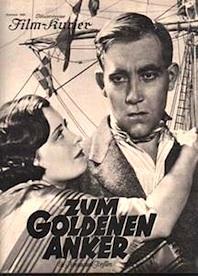Related Research Articles

Frankenstein is a 1931 American pre-Code science fiction horror film directed by James Whale, produced by Carl Laemmle Jr., and adapted from a 1927 play by Peggy Webling, which in turn was based on Mary Shelley's 1818 novel Frankenstein; or, The Modern Prometheus. The Webling play was adapted by John L. Balderston and the screenplay written by Francis Edward Faragoh and Garrett Fort, with uncredited contributions from Robert Florey and John Russell.

Guido Reni was an Italian painter of the Baroque period, although his works showed a classical manner, similar to Simon Vouet, Nicolas Poussin, and Philippe de Champaigne. He painted primarily religious works, but also mythological and allegorical subjects. Active in Rome, Naples, and his native Bologna, he became the dominant figure in the Bolognese School that emerged under the influence of the Carracci.
Dr. Waldman is a fictional character who appears in Mary Shelley's 1818 novel, Frankenstein; or, The Modern Prometheus and in its subsequent film versions. He is a professor at Ingolstadt University who specializes in chemistry and is a mentor of Victor Frankenstein.

The Denial of Saint Peter(La Negazione di Pietro) is a painting finished around 1610 by the Italian painter Caravaggio. It depicts Peter denying Jesus after Jesus was arrested. The painting is housed in the Metropolitan Museum of Art in New York City.
The Premio Parioli is a Group 3 flat horse race in Italy open to three-year-old thoroughbred colts. It is run over a distance of 1,600 metres at Capannelle in April.

The Palazzo Colonna is a palatial block of buildings in central Rome, Italy, at the base of the Quirinal Hill, and adjacent to the church of Santi Apostoli. It is built in part over the ruins of an old Roman serapeum, and it has belonged to the prominent Colonna family for over twenty generations.

Paolo Biancucci (1583–1653) was born at Lucca and was a pupil of Guido Reni, and influenced by Sassoferrato. He painted a Purgatory, for the church of the Suffragio, and an altar-piece of several Saints for San Francesco.

Emilio Pericoli ) was an Italian singer. He was born in Cesenatico, Romagna, Italy.
Departure is a 1931 French drama film directed by Maurice Tourneur and starring Jean Marchat, Simone Cerdan and Ginette d'Yd. It was based on a novel by Roland Dorgelès. An opera singer travelling with her company on a passenger ship for a tour of French Indochina, encounters a mysterious young man who she falls in love with.

The Galleria Spada is a museum in Rome (Italy), which is housed in the Palazzo Spada of the same name, located in the Piazza Capo di Ferro. The palazzo is also famous for its façade and for the forced perspective gallery by Francesco Borromini.
Leo Leux was a German composer of film scores. He began working on films during the Weimar Republic, following the introduction of sound films. During the Nazi era, Leux worked largely on entertainment films such as Truxa (1937) as well more ideogically-oriented films such as Venus on Trial (1941). He continued to work in cinema following World War II, right up to his death in 1951.
Mady Berry (1887–1965) was a French stage and film actress.
Queen of the Night is a 1931 French comedy film directed by Marcel L'Herbier, assisted by Amleto Palermi and Guido Brignone, and starring Francesca Bertini, Ruggero Ruggeri and Romano Calò. It was filmed in Germany as the Italian-language version of the French film La Femme d'une nuit, also directed by L'Herbier. In the early years of sound it was common to remake films in different languages. A German-language version was also released the same year directed by Fritz Wendhausen.

The Golden Anchor is a 1932 German-French drama film directed by Alexander Korda and starring Albert Bassermann, Ursula Grabley, and Mathias Wieman. It is the German-language version of Marius (1931), based on Marcel Pagnol's play of the same title. Such multi-language versions were common during the early years of sound. It was made at the Joinville Studios by the European branch of Paramount Pictures.

The Soaring Maiden is a 1931 German comedy film directed by Carl Boese and starring Lissy Arna, S.Z. Sakall and Dina Gralla.
The Woman They Talk About is a 1931 German drama film directed by Victor Janson and starring Mady Christians, Hans Stüwe and Lilian Ellis.
Television is a 1931 American comedy film directed by Charles de Rochefort and starring Anna Maria Dossena, Silvio Orsini and Amina Pirani Maggi.
The Doctor's Secret is a 1931 American drama film directed by Jack Salvatori and starring Soava Gallone, Lamberto Picasso and Alfredo Robert. It was made at the Joinville Studios in Paris, as the Italian-language version of Paramount Pictures's The Doctor's Secret (1929).
The Mask Falls is a 1931 American drama film directed by William Dieterle and starring Lissy Arna, Anton Pointner and Karl Etlinger. It is the German-language remake of the 1930 film The Way of All Men.
Kismet is a 1931 American drama film directed by William Dieterle and starring Gustav Fröhlich, Dita Parlo and Vladimir Sokoloff. It was produced as a German-language version of the 1930 Warner Brothers film Kismet.
References
- ↑ Waldman p.160